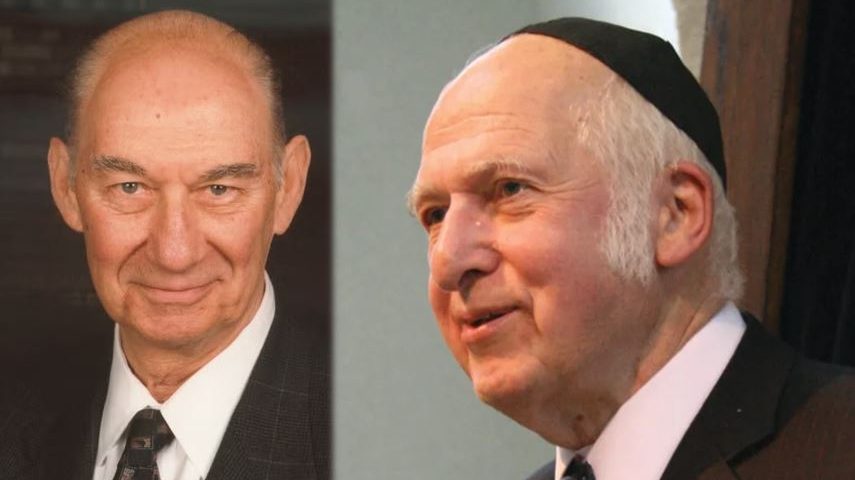Independent Ethics & Hierarchical Pluralism


Eugene Borowitz and Aharon Lichtenstein
Marking the tenth yahrtzeit of Rabbi Aharon Lichtenstein, Shlomo Zuckier offered a comprehensive evaluation of what may be his teacher’s most significant English-language essay: “Does Jewish Tradition Recognize an Ethic Independent of Halakha?” In Zuckier’s TRADITION article “Recognizing Rav Aharon Lichtenstein’s Contribution to Ethics and Halakha” (Spring 2025), he traces the wide-ranging literary “afterlife” of this seminal 1975 essay, surveying its resonances within R. Lichtenstein’s own thought and its profound influence across the broader field of Jewish ethics.
After analyzing the content of “Ethic Independent” in its own right, Zuckier examines how it has remained central to discussions of ethics and halakha for half a century, canvassing various interpretations, objections, and responses from supporters and critics across Orthodox, Conservative, and Reform circles. Through careful consideration of R. Lichtenstein’s argument that ethical obligations are fully binding yet incorporated within halakha through categories like lifnim mi-shurat ha-din, Zuckier argues that the essay exemplifies R. Lichtenstein’s characteristic philosophy of holistic integration and that it has shaped Modern Orthodox approaches to Jewish law and morality. The study also contextualizes the piece within the emergence of Jewish ethics as an academic discipline in the 1970s and traces subsequent developments in the field that have both built upon and challenged R. Lichtenstein’s framework.
In a response to Zuckier, “Hierarchical Pluralism” (Summer 2025), Natan Levin engages with one aspect of Zuckier’s analysis—the framing of the famous debate between R. Lichtenstein and Reform theologian Eugene Borowitz. Drawing on R. Shalom Carmy’s TRADITION essay “Pluralism and the Category of the Ethical” (Summer 1996), Levin suggests that Borowitz’s phenomenological insights about the categorical nature of ethical obligation deserve serious consideration within Orthodox discourse, even when his practical conclusions about overriding halakha cannot be accepted.
